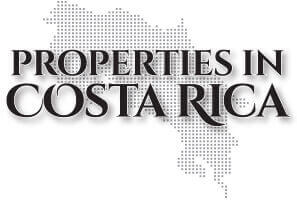
Wondering How Much to Charge For Rent? 8 Key Factors to Consider
October 11, 2021
Properties in Costa Rica
If you have a spare house or room, renting it out can be a great idea to earn an extra source of income. You may also consider renting if you are moving to another location but don’t want to sell your house. Whatever be the reason, renting out a property is beneficial in most cases, provided that you have evaluated some pros and cons. Taking on a tenant can help you pay off your mortgages in a shorter period. The extra income you earn when you list your house for rent can also be put to good use by investing it in a financial goal like your retirement plan. So once you’ve decided that you want to rent out your house, you will want to consider some important factors before deciding on how much to charge for rent.
According to a TransUnion survey, around 84% of landlords said their biggest concern when it came to renting their property was payment. If you plan on staying as an independent landlord, the key to maximizing your income from rent is by fixing a rental rate that not only profits you but is also priced in a way that attracts responsible tenants. It can be quite a challenge to decide on the perfect rent. If you are tempted to set an aggressively high price for your property, hold that thought, because charging an unreasonably high premium could mean that your house has no takers, and it remains vacant for a long time. On the flip side, if your rent is too low, it will affect your income and bargaining power.
Let us now see what factors you should consider when deciding your rent, along with some hacks for estimating a good rental rate, and the importance of counting in several factors that landlords often tend to miss out on:
1. Know the rent control laws of your area
This is the foremost step in deciding the rental rate – knowing whether you are governed by rent control or not. All states do not have rent control laws. The states that do have rent control have a cap on the maximum rent you can charge from your tenants as well the increment in rent allowed every year. These laws work at the city level, so the average rental rate under rent control laws varies from city to city. Some of the cities that run under rent control are New York, Oregon, Washington D.C., Maryland, California, and New Jersey.
To check whether your city falls under the purview of rent control, you can consult an attorney or refer to government websites.
2. Do your research
The next thing you want to do after confirming rent control is to find out how your property fares against other similar properties in your area. This is called competitive research and you need to do it to ensure that you’re not pricing your property too high or too low. You can compare your property to others based on the number of bedrooms, bathrooms, and amenities on offer. Using your research, map out an average baseline to help you decide how much you can charge.
Besides the features of your property, your neighborhood also determines the rental rate based on the conveniences and services nearby. Tenants prefer neighborhoods that are safe and close to their office/school. However, remote work setups are slowly changing this preference.
Top amenities that tenants look for:
- Parking space
- Security
- Walkability from nearby schools, markets, restaurants
- Outdoor recreation options
3. Monitor local ups and downs in the market
The local property market is likely to experience highs and lows as time goes by. This can be due to many factors. You can adjust your rental rate accordingly. You can also choose to modify the rates when it is time to renew the lease. A lot of landlords have been kinder towards their tenants since it has been a rough year for many people.
4. Use a rental calculator
There are many tools available online to help you calculate an estimated rent for your property. Before you post your room for rent, all you have to do is enter certain parameters such as the area you live in, the size and square footage of the property, amenities offered, and other similar factors.
5. The 1% rule
There’s an old saying that the rent of a place should be approximately 1-2% of the total value of the property. While this rule may give you a broader sense of how much you should charge as rent, it may not factor in many factors such as inflation and rise in property prices and taxes as compared to the rent prices.
6. Tis the season
Seasons greatly affect rental rates. It is seen that the demand for rental property rises during spring and summer but quiets down around winter. One of the reasons for this trend can be that people do not like to move in the cold season or during the middle of a school year.
7. Repairs and maintenance
Your property is likely to incur costs related to repair, maintenance, and facilities such as gas, electricity, and water over time. You need to factor these costs into the rent as well. You can use a simple spreadsheet to calculate these costs.
8. Rent collection
Lastly, it is important to figure out how you will collect the rent. A lot of renters prefer paying their rent online. You can work out a way to collect rent that is convenient for both you and your tenant. Some ways to collect rent are through a property manager, mail, direct deposit, online payments, or rent collection apps.
Once you’ve estimated how much you want to charge as rent, you should look into how to list your house for rent. One of the most common ways to post a room for rent is through a real estate agent but they’re most probably going to ask for a hefty commission, sometimes equivalent to a month’s rent. An easy way to list houses for rent is to publish your real estate listing online on Cirtru and reach out to countless potential renters easily!
